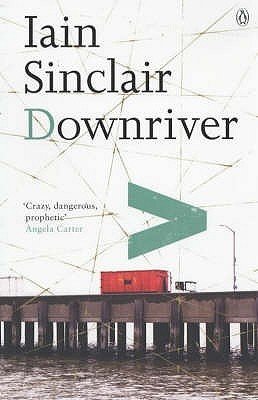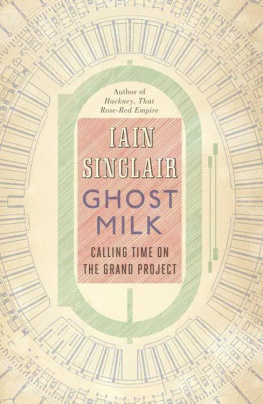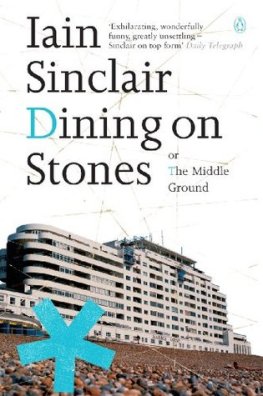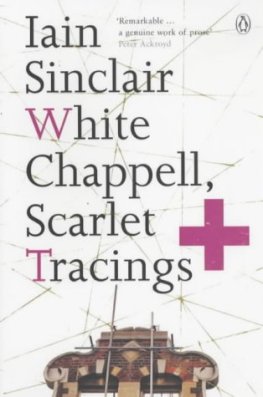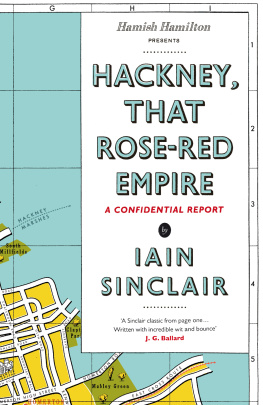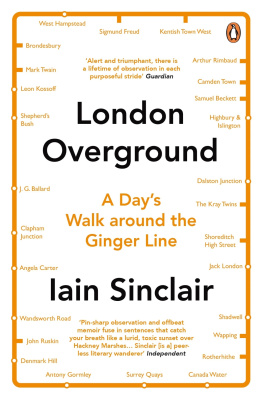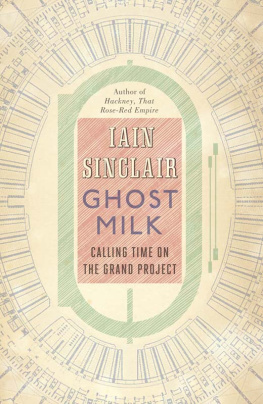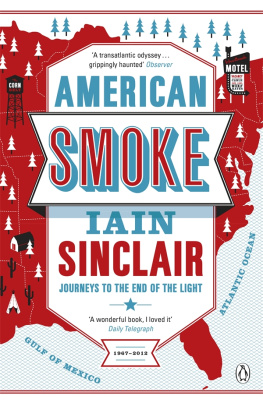I. He Walked Amongst the Trial Men
He walked amongst the Trial Men
In a suit of shabby grey;
A cricket cap was on his head,
And his step seemed light and gay
Oscar Wilde, The Ballad of Reading Gaol
And what, Sabella insisted, is the opposite of a dog?
Her husband, Henry Milditch, continued to ignore her. This was not easy. Sabella had been painting all afternoon, and was now flagrantly drunk. She poked a pint-sized coffee mug into his midriff. The red wine splashed on to his shirt. He wheezed cigar smoke like a leaking radiator.
You two are as boring as those old farts on Test Match Special. Everythings finished, burnt out. Nothing is what it used to be. Every book you mention is a dog, a howling dog, an absolute dog. I want to know what else there is in the world.
Milditch, up to now, had kept his life in separate compartments. But, with the move out of Hackney, everything was coming to pieces. His wife was roaming free in his book room in an old rugby shirt that she filled very adequately, even though she had put it on back to front. And her daughter was doing her best to climb into my lap and interest me in an odd volume of nautical memoirs.
Youre a pair of rheum-eyed mongrels. Sabella spun on me. You whine about dragging yourselves to Grouchos. Why dont you take us along? I dont mind male bimbos. Some of them are quite tasty. And all of them have more to say than you do. Who the hell wants to spend their life stuck out in a Suffolk fish dock, ploughing through reprints of Wilkie Collins, and watching fat opera queens pull themselves out of taxis?
Milditch compulsively reshelved his yellowbacks. He muttered something incoherently decent-minded about inner-city schools and the rising tide of litter and urban violence.
Bollocks to urban violence, Sabella screamed. Youll dump me out in the sticks with your rotten kids, while you slide down the motorway. Youll only crawl back when you need a few quiet days to sleep off the excitement.
Milditch picked her up, carried her out, and locked the door. She kicked against it steadily for ten minutes or so, until she damaged her naked foot. Then she sat in the corridor, and sobbed. Quite musically.
I turned my back on the small pile of books I was about, unenthusiastically, to carry away; I looked out of the bay window at the lovely green lung of Victoria Park. A tame prairie that kept me sane through a difficult winter. This was the house of some old sea captain. It was oddly proportioned, with each room decorated in a distinct style as if warring tribes had camped there. When the park was finally butchered and buried under tarmac by the threatened road schemes, it would all be over. There would be nothing left. The Widow and her gang had decided that Hackney was bad news and the best option was simply to get rid of it, chop it into fragments, and choke it in the most offensive heap of civil engineering since the Berlin Wall.
Then Milditch dropped the hint. Which was, I suppose, why I let it lie fallow for so many months. He gave things away only when they were fatally tainted, or drained of all their vital fluids. He wouldnt pass on an infection, unless he could swop it for a superior one. He must have been unnerved by the weeping of his children, the curses and the threats of his wife. He looked, pacing his den, obsessively delousing his ginger beard, like a veteran foot-soldier from the Katowice midfield, a slightly sandblasted Tommy Smith.
Tilbury, he mumbled. A confession that he instantly suppressed. Tell Dryfeld and Ill kill you. I dont want this surfacing in the guidebook. Its still too hot.
Who was Milditch anyway? His birth name had dissolved, long since, into the borders of the River Lea, the industrial sumplands; out there among the thickets of intemperately abandoned motors, the odd shoes, the cat sacks, the dusty banks of albino nettles. Milditch fitted better at the foot of the credits. It went unnoticed. It sounded so damp and wormy and English. The obscure fogs of his Baltic destiny had been exchanged for a manic restlessness, which partly masked his lifelong quest for revenge. He made deals. He shuffled telephones. He haunted the dead zones of the city looking for connections that only he could activate.
He had another angle: he acted. And cornered the market in disposable villains, donkey jackets, and third policemen. He underacted to the point of being, clinically speaking, brain-dead. He once made base camp for a three-part Mini Series push-on-the-Pole; which was routed, for the convenience of the Money Men, through Angmagssalik, Greenland. He pocketed quite a provocative compensation cheque when a wind-machine, hurling polypropylene chips in a simulated blizzard, cut his face to ribbons. No matter. Convalescent, swathed in ice-crusted bandages, he turned up a stash of pornographic novels dumped by a crew of drill-bit technicians, en route to the Gulf and shuffled them, at a modest profit, into the deep parka pockets of the Second Unit.
Milditchs survival depended upon his anonymity. If he became a face, he was redundant. He let his hair grow and went about unshaven, glowering; then reversed it, scalped himself, grinned like a monkey, and razored his jowls into the consistency of expectorated bubblegum.
I knew him as a book dealer. An acquaintance of mine met him selling cold fish on a beach. Others swore that he dabbled in property. Certainly, he was known to all the casting directors. He was always shooting down the M4 to Bristol; taping his two sentences from some repeatable radio classic; gathering the scripts from his fellow thespians for immediate resale; scouting the Clifton bookshops: only to return to his gloomy captains cabin, to make the inevitable phonecalls, while he watched the shadows lengthen across the troubled ocean of the park.
Tilbury, said Milditch, reluctantly activating a light switch, looks well worth a visit. The floor was covered in books. Thats good. Nothing in cupboards or on shelves. So they dont do the fairs. The place probably opens once a year, for an hour, while the owner airs his alsatians. Id cane it myself but Im marooned in Uppingham in a duff production of Calderons The Surgeon of Honour, sponsored by some local nutter whos trying to revive rural England by importing Soviet chess champions. Just send me a nice sweetener, mate, if he drops his trousers.
I knew then that my days as a dealer were almost over. I didnt want to touch whatever lay on the floor of the Tilbury shop. But I had the queasy sensation there ought to be a story in it.
A swollen pink finger, like the thumb from an inflated rubber glove, rose above the London plane trees, and twisted in the evening air. I could still make out the slogan, Celebrate JESUS! The tent-show season was on us already. It was time to be out on the road.
II
The train out of Fenchurch Street has been salvaged from some condemned fairground. It shakes the boardwalk at Limehouse so fiercely that the station threatens to collapse into a heap of rotten timber. The guards, pouting with boredom, hands lost in pockets, twitchy, surfeited on nipple-sheets, have been thoroughly schooled in circumlocution. They have no ambition beyond stranding any person misguided enough to commit themselves to their protection on the poisoned sands of Canvey Island: a gulag of sinking caravans, overlooked by decommissioned storage tanks.
And this also has been one of the dark places of the earth, I quoted, straining the portentous ripeness of another Pole over the drowned fanns of Essex.
Thin winter light suppurated between towerblocks and shabby graveyards, picking out the glinting scabs of rusty water. A network of ditches offered to flood the low fields, to hide the disgraced enclosures of fast-breeding motors, that were herded, unlicensed, for conversion to paddocks of weed-choked scrap.

